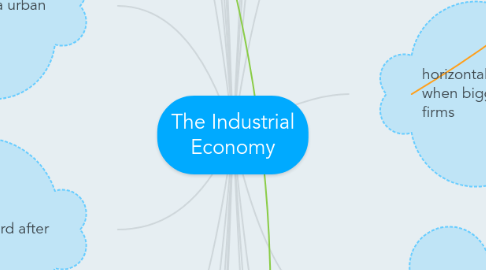The Industrial Economy
Door Paola Gutierrez


1. the union's goal was to have its people visualize freedom more braodly
2. a functioning government was created where both African Americans and whites could participate in
3. railroads integrated the American Market, and increased commerce . . . all of this allowed national brands to come forth
4. effect : creation of time zones. the purpose of this was to make transportation and shipping more standrard for shipping companies
5. railroad expansion was the key to America's 19th century industrial success
6. shift in America from being an agrarian rural nation to a urban industrial nation
7. America became the most industrialized nation in the word after the Civil War
8. some of the effects of the civil war include : the sprout of industrialization (contracts to manufacturers) and by the forcement of a national currency
9. The U.S became the richest and most industrialized nation on earth after the civil war
10. the union had a different perspective on freedom, meaning that it wanted the U.S to think of freedom more broadly
10.1. their main argument was that without an equal economic system america would become "less free" even if it was becoming much more prosperous
11. Industrial Capitalists were known as both "captains of the industry" and "robber barons" because they had positive and negative effects
12. railroads caused the creation of first corporations
13. America's population increased from 40 million (1870) to 76 million in 1900
14. an example of this is Rockefeller Standard Oil
15. economic depression hit the working fore the hardest
15.1. laborers commonly worked 60 hrs per qeek with no sort of pensions or injury conmepsation
15.1.1. a modern example of this would be to not grant a mother pregnancy leave after having a baby

